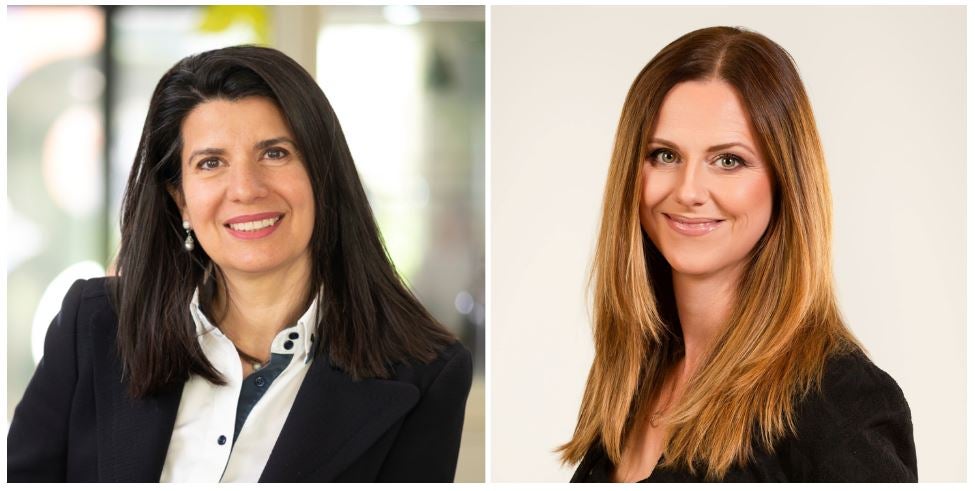As the downturn grips the Swedish
finance market, the head of credit at Nordea Finance in Sweden
talks to Jason T Hesse
about just how much of an effect it is having on his
business.
Few could have predicted the
scale and the speed at which the economic turmoil would hit
financial companies. For Göran Thelin, head of Nordea Finance’s
credit department in Sweden, one thing is certain: his approach to
business has changed dramatically. According to Thelin, Nordea
Finance is now “more cautious” about what business it will
write.
“A company to which we would have
hesitantly given credit to six months ago will not get credit
today,” he says.
Unsurprisingly, the lessor has seen
business investment drop by around 25 percent, particularly in the
vehicles segment, Thelin explains.
“The Swedish economy has slowed
dramatically, and this has reduced the number of credit
applications we are seeing.”
How well do you really know your competitors?
Access the most comprehensive Company Profiles on the market, powered by GlobalData. Save hours of research. Gain competitive edge.

Thank you!
Your download email will arrive shortly
Not ready to buy yet? Download a free sample
We are confident about the unique quality of our Company Profiles. However, we want you to make the most beneficial decision for your business, so we offer a free sample that you can download by submitting the below form
By GlobalDataThere has also been a sea change in
its relationships with existing customers.
“We have noted an increase in
customers who want to prolong their contracts, either through
payment holidays or by extending their lease terms,” says Thelin,
who has seven staff reporting to him. As a result, the lessor tries
to negotiate “acceptable” agreements with those customers who are
finding the economic downturn tough.
Approval rates
Thelin, whose Stockholm-based
business covers leasing, consumer finance, fleet finance and
factoring, estimates that the lessor’s application-to-approval
ratio is around the 75 percent mark for vehicles, while the
vendor-segment, where the majority of Nordea Finance’s equipment
applications come through, is higher, around 85 percent.
Although responsibility for Nordea
Finance’s credit policy ultimately lies with its board of
directors, its policy is largely determined by the company’s
specialised financial services management team (SMT), headed by
Jukka Salonen, the head of the company’s finance group within
Nordea. The SMT has an executive role that covers all of the Nordic
countries in which Nordea Finance is present.
Not unexpectedly, SMT has been
looking more closely at credit, and this has had an impact on
Nordea Finance’s credit policy. Indeed, credit conditions have
tightened in line with the Nordea Group over the past 12
months.
Thelin and his team are measured on
key performance indicators (KPIs) based on customer non-performance
and credit losses as a percentage of the company’s portfolio.
Nordea Finance’s credit team is
only responsible for vendor-channel applications. Credit
applications made through Nordea Bank branches are decided by
Nordea Bank, even if they are managed and funded by the lessor.
To help streamline the
vendor-channel process, Nordea Finance has developed an online
system for vendors, the ‘Nordea Car and Vendor Support’ (NCVS).
Low-value deals are automatically processed, “almost instantly”,
while larger deals are looked at by the credit department and
usually addressed within one working day.
Data from the NCVS is used by
Thelin’s team to begin assessing the customer, alongside data from
UpplysningsCentralen (UC), Sweden’s main credit reference
organisation, or Dun & Bradstreet, for deals involving foreign
companies. The team also checks whether the applicant is already a
customer of Nordea. If so, Thelin’s team has access to the Nordea
Bank system, and can look up the customer’s profile.
“Branches outside of Stockholm or
Gothenburg [Sweden’s largest cities] tend to have a relationship
with their clients, so they will have a lot of information about
our prospects which we can check up on,” Thelin explains.
Committee checks
High-value or complicated
applications are referred to the six-person credit committee, on
which Thelin sits. Deals here are assessed by the twice-weekly
committee on a case-by-case basis.
“What is important, however, is
that a SEK1 million (€95,000) deal, which doesn’t need committee
approval, is looked into as robustly as a proposal that does need
the committee’s approval,” says Thelin. “Smaller deals are as
important as larger deals. The quality of analysis for a smaller
proposal needs to be as good as for a larger one, or you end up
with a bad portfolio.”
Today, the most important part of
his role is ensuring the customer will be able to meet repayment
conditions, taking into account the asset and its collateral. “We
will look at the whole picture, but I’d much rather approve a good
customer with a low collateral, than vice-versa,” he concludes.







